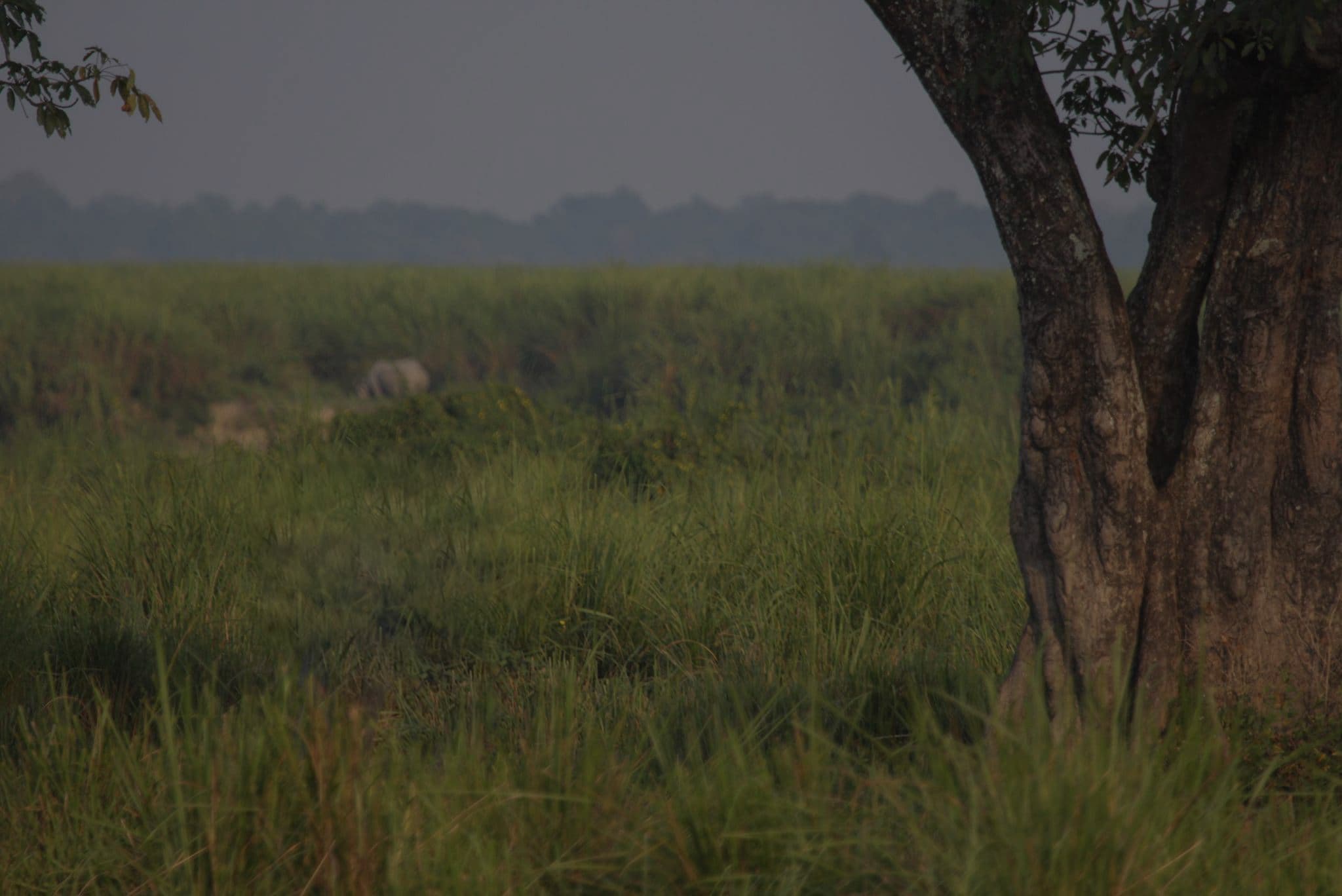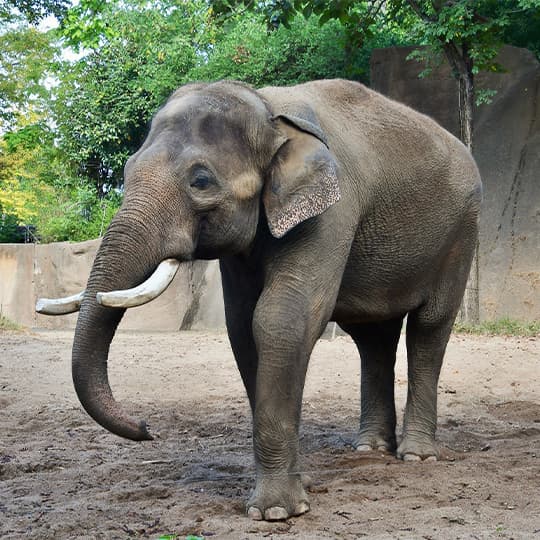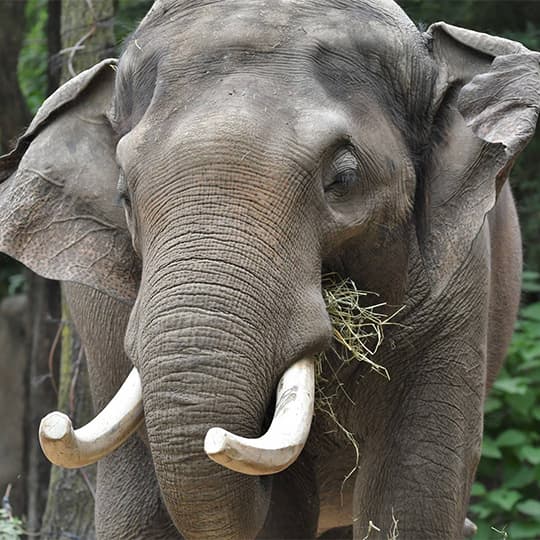
Center for Asian Elephant Conservation

Background
The wild Asian elephant population is threatened by habitat loss, fragmentation, human-elephant conflict, and poaching for its ivory, skin, and meat. This endangered species has an estimated population of 41,410 to 52,345 Asian elephants left in Southeast Asia, which are scattered across fragmented habitats in 13 range countries. If the wild Asian elephant populations continue to decline, then wild elephants could become extinct in the next century.

St. Louis Interest
The Saint Louis Zoo is home to nine Asian elephants that are part of a multigenerational family. The Zoo has always been deeply involved in Asian elephant program leadership, conservation and research in zoos, and has celebrated five Asian elephant births since 1992, significantly contributing to the AZA’s collaborative Species Survival Plan (SSP) for this species.
Since 2005, the WildCare Institute has contributed financial and in-kind support to elephant conservation, protection, education and research programs in Asia. In 2019, the Center for Asian Elephant Conservation (hereafter “Center”) was initiated to intensify the Zoo’s commitment to the conservation of this endangered species through increased financial support, as well as through the development of new partnerships through which the Zoo can participate directly in field studies, and contribute direct financial, technical and in-kind support.

Goal
The Saint Louis Zoo WildCare Institute shares a common vision with other elephant conservation organizations—a vision that includes Asian elephants in the world’s future forever, both in zoos and in the wild. Working with our partners to focus on Asian elephant management and recovery, conservation science, and education, our ultimate goal is to save the endangered Asian elephant from extinction.
Conservation Science
The Center for Asian Elephant Conservation's partnership with the Smithsonian Conservation Biology Institute and others will significantly enhance our scientific understanding of rewilding elephants. Through a ground-breaking research project based in Myanmar, a framework will be developed for elephant release that incorporates a diversity of scientific approaches at all decision stages. To test this framework, approximately 30-50 elephants will be released into the wild in the near future to gain a deeper understanding of which animals are most likely to succeed in the wild and which management choices can ensure success. This project will be a tool for environmental managers to use when designing future elephant reintroduction programs across Asian elephant range countries.
Between 2005 and 2021, the WildCare Institute contributed more than $420,000 to the International Elephant Foundation to support Asian elephant conservation in Asia and has supported projects in Sumatra, Sri Lanka, Myanmar and India.
The Zoo is leading the fight against Elephant Endotheliotropic Herpes Virus (EEHV), a viral infection that affects elephants in the wild and in zoos, by contributing to prognosis and treatment protocols that have saved elephants. In 2021, the Zoo established its own EEHV lab to further our commitment to fighting this disease.

